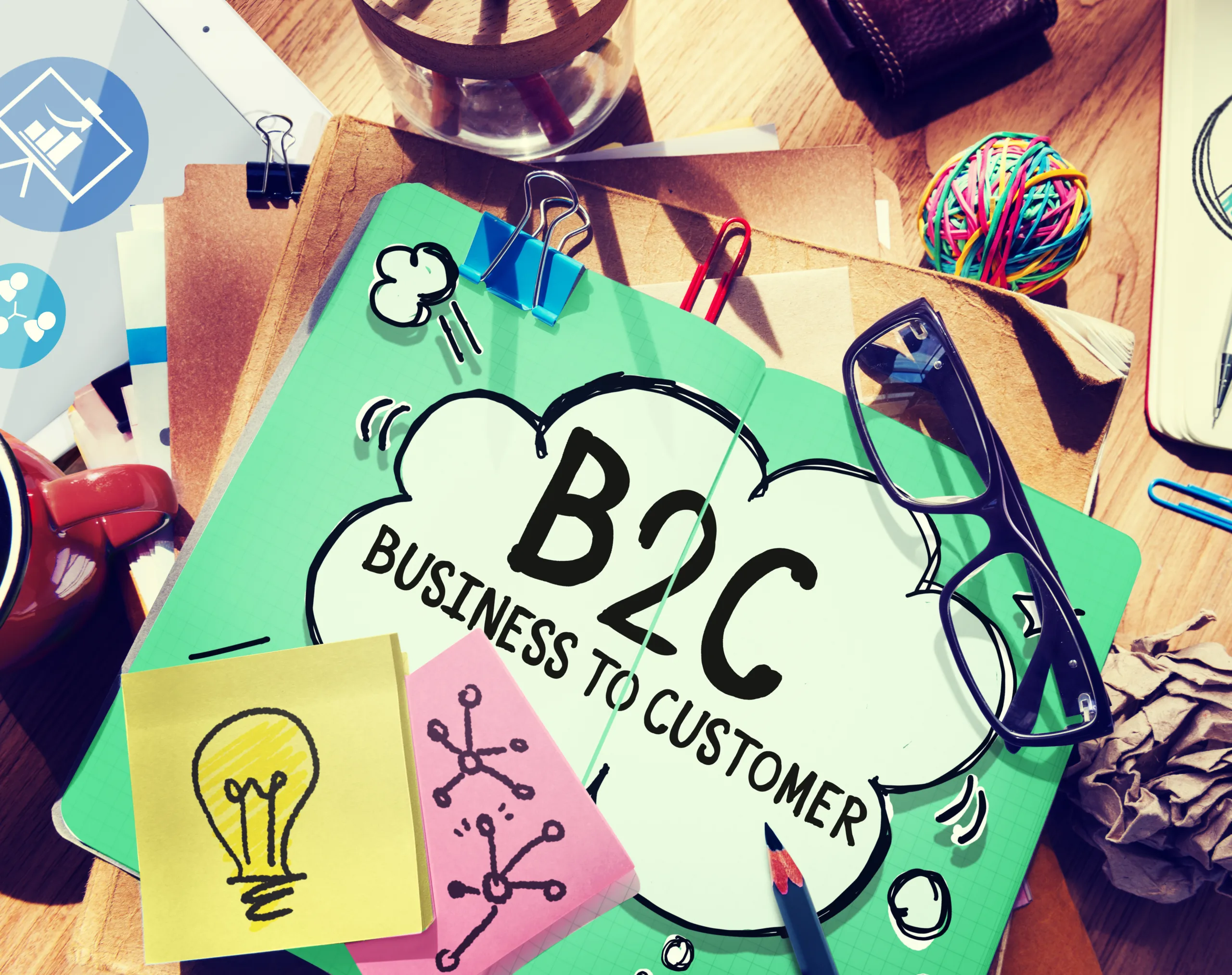Introduction:
In the vast realm of marketing, two fundamental strategies reign supreme: Business-to-Business (B2B) marketing and Business-to-Consumer (B2C) marketing. While both aim to drive sales and foster brand loyalty, they operate within distinct landscapes, targeting different audiences with unique needs, behaviors, and decision-making processes. Understanding the disparities between B2B and B2C marketing is paramount for crafting effective strategies tailored to each sector’s demands.
This comprehensive exploration delves into the intricacies of B2B and B2C marketing, elucidating their different approaches, objectives, and methodologies. By dissecting their disparities and synergies, we aim to equip marketers with the knowledge necessary to navigate these distinct realms adeptly.
B2B Marketing vs. B2C Marketing: A Comparative Analysis
1. Target Audience:
The foundation of any marketing strategy lies in understanding the target audience. In B2B marketing, the focus is on catering to businesses and organizations rather than individual consumers. These businesses often operate within specific industries and have distinct requirements, procurement processes, and decision-making structures. As such, B2B marketers must tailor their messaging to resonate with professionals who are tasked with evaluating products or services based on factors such as functionality, reliability, and ROI.
Conversely, B2C marketing targets individual consumers who make purchasing decisions based on personal preferences, emotions, and perceived value. Understanding consumer demographics, psychographics, and buying behaviors is crucial for devising B2C strategies that appeal to diverse audiences across various channels.
2. Buying Process:
The buying process in B2B and B2C environments differs significantly due to the complexity of decision-making and the number of stakeholders involved. In B2B transactions, purchases often entail lengthy procurement cycles, involving multiple stages such as needs assessment, vendor evaluation, negotiations, and contract finalization. B2B marketers must engage with key decision-makers, influencers, and gatekeepers within the target organization to navigate this intricate process effectively.
On the other hand, the B2C buying process tends to be more straightforward, typically involving fewer decision-makers and a shorter timeline. Consumers may engage in impulsive purchases driven by emotions, trends, or immediate needs. B2C marketers leverage various tactics such as targeted advertising, promotions, and personalized recommendations to influence consumer behavior and facilitate conversions.
3. Relationship Building:
Building long-term relationships is a cornerstone of both B2B and B2C marketing, albeit with different nuances. In B2B marketing, fostering trust, credibility, and rapport with clients is essential for cultivating enduring partnerships. B2B transactions often involve high-value contracts and ongoing engagements, necessitating consistent communication, reliability, and exceptional service to retain clients and secure repeat business.
In contrast, B2C relationships tend to be more transactional in nature, with consumers making individual purchasing decisions based on immediate needs or desires. However, successful B2C brands prioritize customer experience, satisfaction, and loyalty to foster repeat purchases and positive word-of-mouth referrals. Loyalty programs, responsive customer support, and personalized interactions are instrumental in nurturing lasting connections with consumers.
4. Content and Messaging:
Effective communication lies at the heart of both B2B and B2C marketing strategies, albeit with distinct approaches tailored to the respective target audiences. In B2B marketing, content is geared towards educating, informing, and addressing the specific needs and pain points of businesses. Whitepapers, case studies, industry reports, and thought leadership content are commonly used to demonstrate expertise, showcase product benefits, and provide solutions to complex challenges faced by B2B clients.
In contrast, B2C marketing thrives on creating engaging, emotionally resonant content that captivates consumers’ attention and drives purchase intent. Storytelling, visual imagery, user-generated content, and influencer partnerships are leveraged to evoke emotions, build brand affinity, and stimulate demand for consumer products or services.
Conclusion:
In essence, while B2B and B2C marketing share common objectives of driving sales and fostering brand loyalty, their strategies diverge significantly due to differences in target audience, buying processes, relationship dynamics, and messaging tactics. B2B marketing requires a deep understanding of industry dynamics, stakeholder relationships, and complex procurement cycles, while B2C marketing emphasizes consumer engagement, emotional appeal, and seamless shopping experiences.
By recognizing and leveraging the nuances of B2B and B2C marketing, businesses can develop tailored strategies that resonate with their target audiences, drive conversions, and propel sustainable growth in today’s competitive marketplace. Adaptability, creativity, and a customer-centric mindset are paramount for success in navigating these distinct yet interconnected realms of marketing.
Understand the nuances between B2B and B2C marketing with Digital Sunbird’s expert insights. Our comprehensive services provide businesses with tailored strategies to navigate the distinct challenges and opportunities of each market segment. From targeted messaging to specialized channels, we offer actionable recommendations to maximize your marketing effectiveness. Contact us today to access our proven methodologies and gain a deeper understanding of B2B and B2C marketing dynamics.
Our services include market analysis, strategy development, channel optimization, and performance tracking for B2B and B2C marketing success.
Contact Us:
Reach out to us at Digital Sunbird to learn more about our B2B and B2C marketing services and Contact us now and gain a competitive edge in both B2B and B2C markets.
